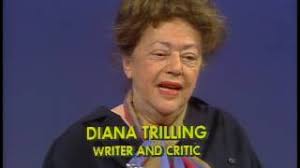23. Kate Zambreno
“I tell her to read the Neapolitan Novels, which I
haven’t read, only because I get annoyed by books that get too much attention
and find myself allergic to them.” -Kate Zambreno
Now that
I live in upstate New York, I don’t really read in public anymore, but during
my 14 years in the city, I always took a book with me on the subway. I had a
horror of idle time and so by using the trip productively, by doing the same
thing I would likely have been doing had I been at home, I made sure that my
ride would not be wasted. But not just any book would do. It had to be one I
would not be embarrassed to be seen reading and this meant, especially, that it
could not be whatever book the rest of the city was reading at that moment.
For a
long time, the hot thing to read was Elena Ferrante’s Neapolitan Novels.
Although I do plan on eventually catching up with these books, I had no
interest in doing so during the time of their peak popularity. Part of this
was due to the fact that I did not want to be seen reading them on the subway,
and if I were reading them at home but couldn’t bring them with me when I took
the train, then the time spent riding the subway would inevitably be wasted.
But another part of my lack of interest in reading these books ran along the same lines as Kate Zambreno’s—a revulsion to whatever it is that everyone else
is obsessing over at a particular moment.
Actually,
as I would imagine many people are, I’m split in my feelings about engaging
with whatever the book-of-the-moment may be. I do feel a strong pull, in these
situations, to find out what all the hype is about, to hip myself to a genuine
cultural phenomenon, but then this rubs up against an inherent distrust of the
overly popular. There’s no way to define this distrust as anything but a
superior attitude, but it’s one that I can’t help but feel. Even though a
literary novel may be highly esteemed by a select, reasonably sophisticated
group of people (as opposed to a more generalized entertainment like, say, a
superhero movie), I can’t overcome a feeling that there’s something suspect in
all this adulation. I have no doubt that Ferrante’s novels are as good as
everyone says they are, but I’m too perpetually suspicious of books that achieve
that degree of hype to ever want embrace the hot new thing.
Of
course, most people want to feel that they’re special, that their tastes are
sophisticated and that they are sophisticated too. Some people define this
taste by liking the same things everybody else does, or at least everybody else
in a certain select group. In this way, their enthusiasms are given the
justification of outside approval. Others prefer to define their taste as one
of difference, not simply different from the masses but from the supposedly
more sophisticated literary tastemakers as well—different, in this case,
meaning more obscure, more difficult, better. While I would definitely put
myself in the latter category, I’d probably
also have to admit that there’s no special merit in having rarer tastes. Sometimes
more obscure is simply more obscure. I can justify my enthusiasm for the uncommon
by saying that I want to call attention to an overlooked gem, but if that gem
were to get its just recognition, to find mainstream success, how sure can I be
that I wouldn’t immediately lose all interest in this suddenly hot property?



Comments
Post a Comment